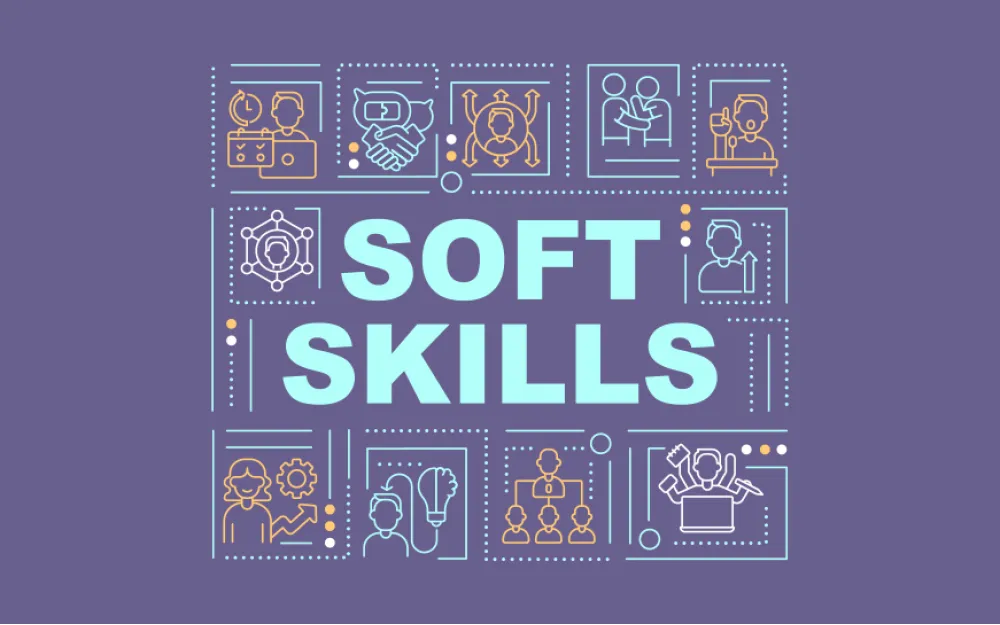Soft Power: How Workers’ Soft Skills Can Benefit the Energy Industry
Career Resources
The transition to renewable sources, the emergence of new technologies, and the increasing demand for sustainability and efficiency mean that the energy industry is undergoing rapid changes. These changes and challenges require employees who have both technical skills and the kind of soft skills that enable them to communicate effectively, collaborate with others, adapt to changing situations, and lead with vision and integrity.
In this blog post, we will explore the importance of soft skills in energy industry recruitment and how employers can identify and evaluate them during the hiring process.
What are Soft Skills?
Soft skills are the personal attributes, behaviours, and attitudes that influence how we interact with others and how we perform our tasks. They are often contrasted with hard skills, which are the specific knowledge and technical abilities that can be measured and verified. While hard skills are essential for any job, soft skills are equally important as they determine how well we use our hard skills in different contexts and situations.
Soft skills that we observe as being helpful for candidates looking to successfully land positions in the modern energy industry include:
- Communication: Expressing oneself clearly and confidently, listening actively, and tailoring a message to different audiences and purposes.
- Teamwork: Working cooperatively and constructively with others, respecting diversity, and contributing to a common goal.
- Adaptability: Adjusting to changing circumstances, learning from feedback, and coping with ambiguity and uncertainty.
- Leadership: Inspiring and motivating others, setting direction, managing resources and resolving conflicts.
Benefits of Soft Skills to the Energy Industry
Soft skills complement technical skills in the energy industry as they enable employees to apply their technical expertise in more effective and innovative ways. Let’s take the qualities described above and apply them in context and see how soft skills can benefit the energy industry.
- Communication skills can help engineers explain complex concepts to clients or stakeholders, negotiate contracts or agreements, and clearly present their findings..
- Teamwork skills will manifest as collaboration with colleagues from different disciplines and backgrounds, to share best practices or ideas.
- Managers who are adaptable are better able to respond to changing market conditions and customer needs, and implement new technologies or processes..
- Executives with strong leadership skills can set strategic goals and priorities, foster a culture of innovation and empower their teams to achieve high performance.
Identifying Soft Skills in Candidates
Assessing soft skills during the recruitment process can be challenging as they are not as directly quantifiable as hard skills. However, we have seen companies use methods such as the following to measure soft skills in candidates:
- Asking candidates to describe specific situations where they demonstrated soft skills in their previous roles or projects. For example, asking a candidate at interview: "Tell me about a time when you had to communicate a difficult message to a client or stakeholder. How did you approach it and what was the outcome?"
- Checking former employers or colleagues to provide feedback on candidates' soft skills. For example, asking a referee: "How would you rate the candidate's teamwork skills? Can you give me an example of how they collaborated with others on a project?"
- Employing psychometric assessments and standardised tests that have been devised to measure candidates' personality traits that relate to soft skills.
Developing Soft Skills in Employees
Soft skills can be learned and improved over time. Employers can help their employees develop their soft skills by providing them with opportunities and support. Companies that nurture their employee’s soft skills are investing in their workforce. These are some effective methods of helping employees develop their soft skills:
- Mentoring programs: Pairing employees with more experienced mentors who can guide them, coach them, and share their insights and advice.
- Leadership training: Offering employees courses or workshops that teach them the principles and practices of effective leadership.
- Cross-functional team projects: Assigning employees to work on projects that involve collaboration with people from different departments who have different perspectives or expertise.
The role of managers in fostering soft skill development in their teams is crucial as they can model the desired behaviours, provide constructive feedback, recognise achievements, and create a positive and supportive work environment for their staff.
By investing in soft skill development, employers can ensure that their workforce is ready for whatever future challenges and opportunities are revealed as the energy industry evolves.
If you have any questions about any of our recruitment services, give our office a call on +44 (0) 1502 564892. Or you can always email us at headoffice@peoplewithenergy.co.uk
Our latest vacancies are posted on social media. Be at the head of the queue by following us on Twitter and LinkedIn.




